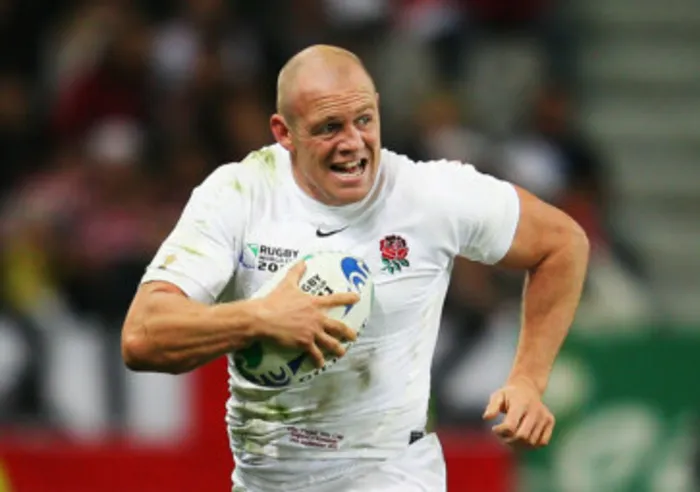When more becomes too much: Rugby’s new battle over greed and glory

The proposed R360 competition – backed by private investors and spearheaded by amongst others England World Cup winner Mike Tindall is reportedly targeting a 2026 launch.
Image: David Rogers / File
In Leo Tolstoy’s short story How Much Land Does a Man Need?, a peasant named Pahom becomes obsessed with owning more land, convinced it will bring him peace and prosperity.
What transpires is that the more he gets, the more he wants – until, offered a chance to claim as much land as he can walk around in a single day, he pushes himself past exhaustion. He completes the circuit, but collapses, and dies due to exertion. Tolstoy ends with a line that has echoed for generations: all a man truly needs is six feet of land – heels to head – enough to be buried in.
We can learn from Pahom; more is not always better.
Yet in modern sport, “more” seems to be the only thing that matters. Not content with competition alone, we now demand that it pays – and then pays even more. Professionalism became the norm; then came the age of billion-rand broadcast deals and private franchise leagues. Cricket has its IPL. Golf has the LIV. Football flirted with the European Super League.
And now rugby has R360.
The latest ‘rebel’ league
Over the past few months, signs have pointed to a new global breakaway rugby league beginning to take shape. The proposed R360 competition – backed by private investors and spearheaded by England World Cup winner Mike Tindall, former Bath director Stuart Hooper, and the lawyer who helped build the IPL and LIV Golf — is reportedly targeting a 2026 launch.
Reports suggest R360 already has around 160 men on legally binding pre-contracts, with at least four high-profile Springboks said to have signed up.
According to reports, the league has already secured its funding, with support said to include investors from Saudi Arabia, the United States and the United Kingdom. Matches would take place in a “grand prix” format across major cities such as London, Barcelona, São Paulo, New York and Los Angeles.
Tindall has argued that rugby is ripe for disruption. “Rugby is feeling the fallout of the last few years with financial mismanagement, declining investment in the club game and a product that is struggling to evolve,” he said.
“Clubs around the world are feeling the strain and are being propped up by the international game. Rugby's lack of innovation and ability to change risks losing its appeal to new audiences and its younger market.”
‘We urge extreme caution’
The response from World Rugby’s major unions has been swift and severe. South Africa joined New Zealand, Australia, Ireland, England, Scotland, France and Italy in issuing a joint statement warning players and staff against joining R360.
“As a group of national rugby unions, we are urging extreme caution for players and support staff considering joining the proposed R360 competition,” the unions said.
“We all welcome new investment and innovation in rugby; and support ideas that can help the game evolve and reach new audiences; but any new competition must strengthen the sport as a whole, not fragment or weaken it.”
The statement went further, warning that any player who joins the league would become ineligible for international selection.
“R360 has given us no indication as to how it plans to manage player welfare; how players would fulfil their aspirations of representing their countries, and how the competition would coexist with the international and domestic calendars,” the unions said.
“The R360 model, as outlined publicly, rather appears designed to generate profits and return them to a very small elite, potentially hollowing out the investment that national unions and existing leagues make in community rugby, player development, and participation pathways.”
Who’s really being greedy?
In the end, with finger-pointing coming from both sides of the fence in all the sports with rebel leagues, one is tempted to ask … so who is the Pahom in this story?
It’s difficult to say, looking on from the sidelines, but I wonder, could it be both sides — the investors driving R360 and the unions defending the status quo? Both claim to be protecting the game’s future. Yet beneath the statements and press releases, the argument sounds familiar: who gets to own more of rugby’s “real estate”?
For R360, the promise is freedom and innovation — fewer rules, more profit, a new kind of spectacle. For the unions, the defence is about heritage, balance, and the grassroots ecosystem that feeds the sport.
But between the two, players may once again become the currency rather than the beneficiaries. Putting their bodies on the line to fill someone else’s coffers may not be the best route, no matter which side of the fence they decide to play on.
It’s hard not to think of Pahom, racing against the sunset to mark off more ground than he could ever use. Every few decades, sport redraws its boundaries — expanding faster, chasing bigger numbers, promising better things. But each expansion brings the same question Tolstoy posed more than a century ago:
How much does anyone — or any game — really need?
Related Topics: